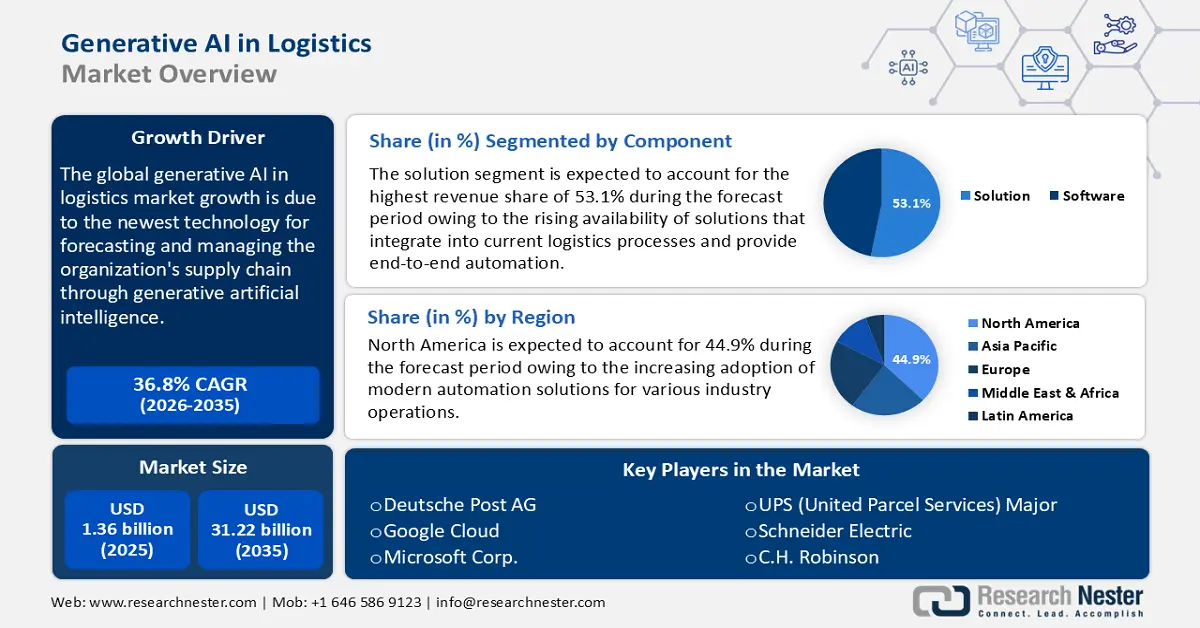Generative AI in Logistics Market Outlook:
Generative AI in Logistics Market size was valued at USD 1.36 billion in 2025 and is likely to cross USD 31.22 billion by 2035, expanding at more than 36.8% CAGR during the forecast period i.e., between 2026-2035. In the year 2026, the industry size of generative AI in logistics is assessed at USD 1.81 billion.
Generative AI in supply chains provides an opportunity to accelerate end-to-end logistics operations and companies have identified this trait and are training models on their own data sets to implement AI for optimized productivity and efficiency. Also, predictive maintenance is another key area where generative AI has helped companies determine the assembly-line machines that are most likely to fail in the future, thus improving equipment effectiveness (OEE)- a vital manufacturing metric. Siemens and Microsoft partnered in October 2023 to strategically adopt cross-industry AI, orchestrating copilots for raw material management, distribution networks, production processes, and customer demands.
Such supply chain responsiveness, resilience, and efficiency dictate an organization’s competitiveness. Conventional supply chain management solutions rely on experience-driven decision-making and established methodologies, where logistic partners navigate the complexities of inventory management, demand forecasting, and distribution scheduling using heuristic algorithms and historical data analysis. These methods often failed to address modern logistics complexities and in turn, aided generative AI in logistics market adoption. The manufacturing and logistic sectors are fertile grounds for generative AI applications, owing to demand fluctuations and the presence of intricate supply chain networks.
The emergence of ChatGPT in the public sphere ignited an interest in the AI chatbot sector. Microsoft's announcement of a USD 10.0 billion investment in OpenAI in January 2023 galvanized this trend, imploring other technology providers to contest the trend. Later in March 2023, Google introduced Bard and Project Magi, while in February 2023 Meta unveiled a language model with 65 billion parameters called LlaMA. Concurrently, OECD data also suggests that AI could readily automate 27% roles in the OECD nations, including inventory management and customer service. Early adopters of AI-powered supply chain management recorded a reduction in logistics costs by 15%, improved service levels by 65%, and inventory levels by 35%.


